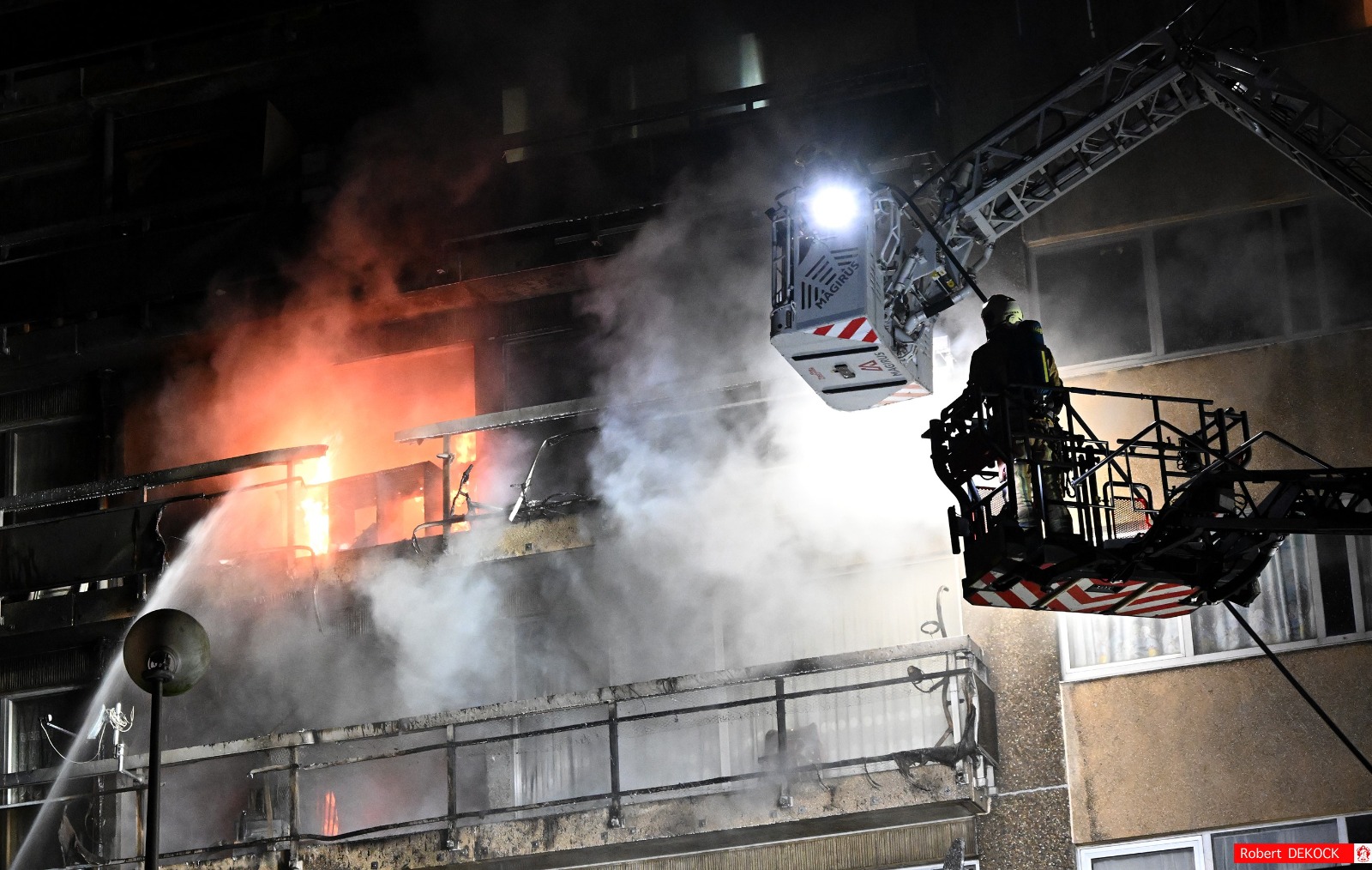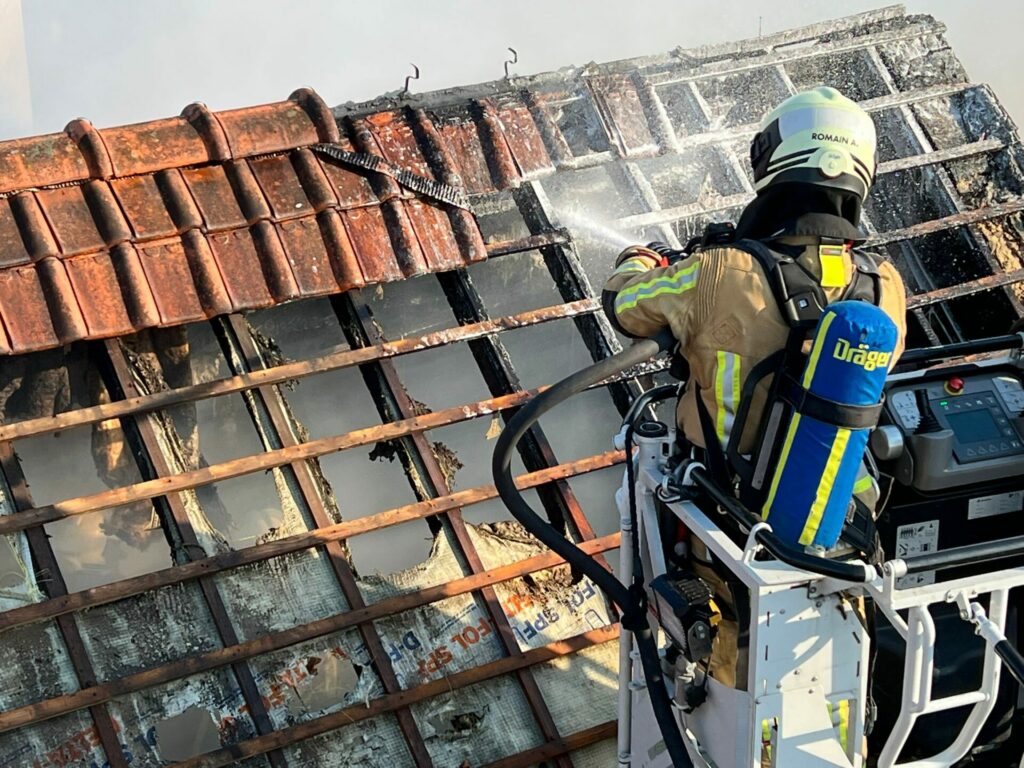The Brussels fire brigade has seen a rise in the number of fires it responds to, largely in buildings whose occupants cannot afford to maintain the premises correctly.
On average, two homes go up in flames every day in Brussels. The region's fire brigade is one of the best-trained and most efficient in the country, arriving on the scene three minutes faster than the national average. So far this year it has already recorded almost 500 house fires, Bruzz reports. This year will likely set a new record, surpassing the 743 domestic fires seen in 2023 and the 777 in 2022.
Two fires have been fatal so far this year: one woman died in a blaze in April that reports say was started deliberately, while another person died in a fire on 22 August. Other fires have left homes uninhabitable and people injured.
Figures collected by the Brussels Institute for Statistics and Analysis (BISA) show the total number of interventions – including both domestic and industrial incidents – rose from 2,204 in 2012 to 3,813 in 2022. The highest proportion of fires per inhabitant has been recorded in the City of Brussels (183 in 2023 and 117 so far this year) and Saint-Gilles (39 in 2023, already 24 this year). Schaerbeek, Anderlecht and Molenbeek also have a high proportion of incidents.
What's driving the rise?
The high number of fires in the Brussels-Capital Region is partly down to the age of its buildings, says Peter Roseleth, director of the Department of Prevention. "Many Brussels homes were built between 1945 and 1970 before fire safety legislation was introduced."
Financial constraints also play a role: owners and tenants lack the means to make properties fire-safe and items such as smoke detectors are often low on the list of priorities. In Brussels, smoke detectors are only an obligation for rental properties. Only from 1 January 2025 will they become compulsory in all homes.

Credit: Brussels Fire Brigade
The energy crisis pushed even more households into financial precarity, with some people even lighting barbecues indoors to stay warm. Carbon monoxide poisoning rises every year from October and peaks during the winter months. In addition to this risk, glowing coals are a fire hazard themselves.
Furniture materials can also play a role. For example, modern sofas made of synthetic materials such as foam and glue take just minutes to ignite. With wood increasingly used in construction, homes can become more susceptible to fires if the building materials are not treated properly or are placed incorrectly.
A nationwide rise
It's not only Brussels that has seen a rise in fires: 2024 was an especially bad year for incidents nationwide, says fire expert Tim Renders. A total of 44 deaths from house fires were recorded from January to July across the country. "This means that every five days so far someone has died from a fatal house fire in Belgium."
Already in Flanders, deaths this year have surpassed the number for the whole of 2023. "In just under seven months, house fires in Flanders have already claimed 24 lives," Renders wrote. In Brussels,
Smoke detectors remain the most cost-effective and simple tool to avoid major fires. But many people don't know these must be approved in the EU. And if the battery runs out, people are advised to buy a completely new device, as the detection system may have aged.
The Brussels fire brigade calls for more structural changes to improve fire safety in the region, including mandatory replacement of non-fire doors and adding evacuation routes in buildings. Raising awareness of the dangers is also important, which is why the fire brigade educates in schools. Via its WhatsApp channel and Facebook, it also shares images of interventions and burnt-out houses, often accompanied by warnings.
This article was updated on Thursday 22 August at 12:30 to mention a second fatal fire in Brussels.

